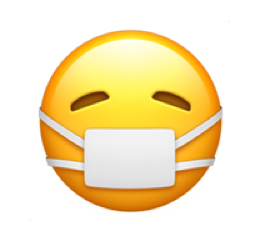

I ranted back in April about the lack of public health messaging targeting teens and young adults, specifically, regarding how they are spreading SARS-CoV-2, the infectious disease which causes Coronavirus disease 2019 (COVID-19). I was told that such specific messaging was “unnecessary.”
I was right about the need for this targeted messaging… and I really didn’t want to be… and now we’re seeing the consequences, as young people quickly became, and still are, some of the most prolific spreaders of this virus, while most of them remain unaffected by such.
I have so hoped we’re all learning about how to best communicate about this global pandemic, particularly regarding prevention. But after the last four days, my hopes have, once again, been dashed.
Here’s a first-hand account of just how bad communication and contact tracing is across corporate HR departments and across city and county health departments in the USA – from my current home in the Portland, Oregon metropolitan area:
Someone in my household got exposed to COVID-19 by a co-worker 11 days ago. He found out about the exposure on Friday – day eight after exposure. He came home and we implemented our quarantine protocols (yes, we have them!), retreating to divided-up spaces of the house (his part and my part), him wearing a mask at all times etc.
No one told him to, but he made an appointment with Kaiser, our health care provider, to get tested for SARS-CoV-2. He got tested the next day, nine days after exposure. He got his results – “undetected” – on day 10. He continued to stay home on day 11, today, despite some in his workplace implying it’s okay now for him to come back.
We have waited for our county public health office to contact him with whatever they need to contact him for. That’s how contact tracing works, right? He finally heard from a Multnomah County person on Day 11, yesterday, who said, “Oh, you know, I shouldn’t be the one contacting you, it should be Washington County” (where we live).
The representative also told him he had to quarantine until December 4, and he asked WHY!? She said she had down in her records that he was exposed on Friday. He explained that he was exposed a week ago Thursday, 11 days ago. She corrects her records and then says she has a letter for him for his employer, but she can’t send it – she’ll have to send it to Washington County and they will send it to him.
That same night, on Day 11, his doctor texted him to tell him his test was negative – which he knew from an earlier message on Sunday (Day 9).
Neither his company’s HR department, nor Kaiser, nor the Multnomah County Health Department ever told him about these official guidelines for our area on what to do after you get tested. I saw a link to the guideline on a friend’s Facebook newsfeed on Monday morning – that’s the only reason we know about such.
So, in sum: his company failed (wrong date on exposure, wrong date on when to return to work, never told him about the official guidelines for what to do after being tested), our health care provider/testing site failed (never told him about the official guidelines for what to do after being tested), and two health departments have failed (the wrong one contacted him, contact was not at all timely, and no representative ever told him about her own department’s official guidelines for what to do after being tested).
What didn’t fail? Face masks and social distancing. It’s why he doesn’t have COVID-19. It’s why I don’t either.
There is a global pandemic going on, hospital rates are soaring, infection rates are soaring, and if this is how it is, not just in the Portland, Oregon metro area but across the USA, this is part of why: information isn’t timely and complete, accurate information isn’t being distributed. None of the aforementioned, with the exception of the timeliness of the public health department finally reaching out, can be attributed to lack of money nor lack of time.
We’re hopeful that he’ll make it to day 14 – Thanksgiving – without developing symptoms, and that if he does have it, I don’t. We’re thankful to still be able to work and that we have a home big enough for quarantine protocols. But, yes, I’m frustrated! There’s no reason not to do better regarding public health communications!
